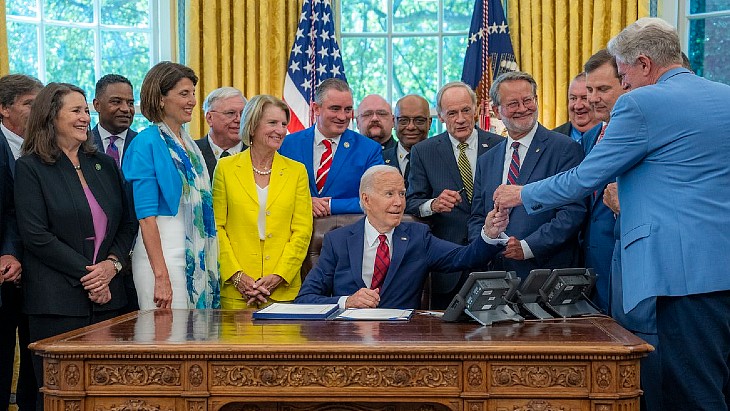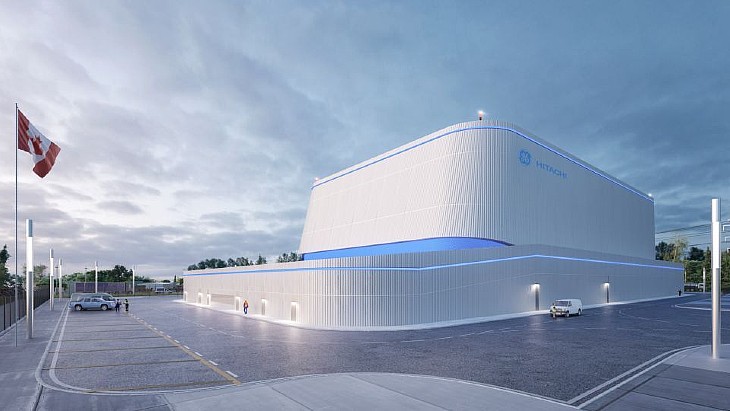Test demonstrates business case for Mo-99 production
.jpg)
The test run proves that Phoenix's core technology is "more than capable" of reliably driving Shine's medical isotope production and serves as a major technology risk mitigation step for both companies, Phoenix said.
Shine plans to use a low-energy, accelerator-based neutron source to fission a low-enriched uranium target dissolved in an aqueous solution to produce molybdenum-99 (Mo-99), which is the precursor of technetium-99m (Tc-99m), the most widely used isotope in nuclear medicine. Currently most of the world's supplies of Mo-99, which cannot be stockpiled due to its short half-life of 66 hours - is produced in a limited number of research reactors using highly enriched uranium (HEU) targets, although the radioisotope can also be produced in small quantities from cyclotrons and accelerators. Reactors in Australia, Poland and South Africa produce the isotope using low-enriched uranium targets.
The weekly production cycle envisaged by Shine will require the particle accelerator systems to operate for 132 consecutive hours, or 5.5 days, with better than 95% uptime. During the recently completed test run, Phoenix's second-generation neutron generator prototype operated in Shine's facility with an average neutron yield 10% higher than required and uptime higher than 99%.
"These results prove Phoenix’s core technology is more than capable of reliably driving Shine’s medical isotope production and serves as a major technology risk mitigation step for both companies, Phoenix CEO Ross Radel said.
Shine founder and CEO, Greg Piefer said the results represented over a decade of joint development effort between the two companies from proof of concept to proof of scale, and now to a production unit. "We proved, with an independent reviewer onsite, that the system can not only meet but exceed our business requirements," he said.
Eight Phoenix production neutron generators are to be installed over the next two years at Shine's facility in Janesville, to commence operation in 2021. The facility will be capable of producing up to a third of global demand for Mo-99, but will primarily serve the US market.
Shine Medical Isotopes is one of four companies selected earlier this year by the US Department of Energy's National Nuclear Security Administration earlier this year to begin negotiations for potential new cooperative agreement awards for the supply of Mo-99 without using HEU. The other companies are: Niowave Inc, NorthStar Medical Radioisotopes LLC and Northwest Medical Isotopes.










_88592.jpg)

